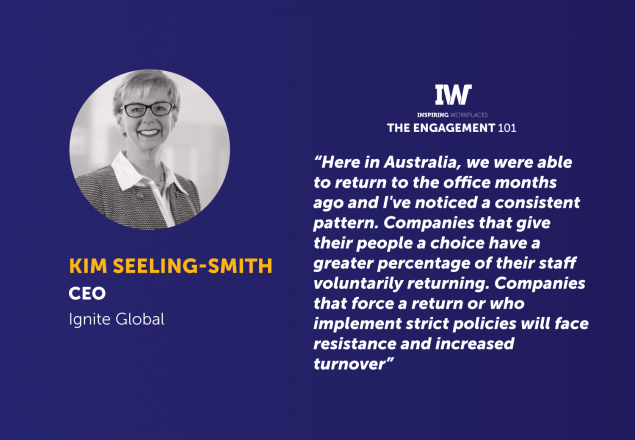
04th April 2025
How Conscious Leadership Transforms Culture and Performance

Conscious leadership transforms traditional hierarchies into inclusive, empathetic workplaces by prioritizing shared power, kindness, and gratitude. This “we” culture empowers individuals, improves performance, and strengthens innovation. From hiring for values to supporting caregivers and measuring empathy, conscious leadership fosters environments where people feel respected, heard, and motivated to thrive.
This article was written by Shelley Zalis and published in IMD.
I believe in the transformative strength of a “we” culture – one that prioritizes shared leadership, collaboration, and a foundation of respect and kindness in every interaction. Conscious leadership drives this transformation by challenging traditional power structures and reshaping them into shared responsibility rather than hierarchical control. This shift is essential in building workplaces where everyone feels valued and empowered to lead.
In a conscious workplace, influence is not about authority over others; it’s about using one’s role to create an environment where everyone feels respected and capable of contributing to the organization’s success. Conscious leaders nurture a culture of inclusivity: leadership that flows from the top down, bottom up, and all around. This environment – where respect, kindness, and empathy thrive – fosters innovation and collaboration.
Alison Fragale, author of Likeable Badass, highlights a critical distinction between power and status. Power is control over resources like authority, money, or information, while status is about the respect one commands. Many organizations focus on power without recognizing the importance of status, leaving leaders with authority but without the respect they need. This dynamic is especially challenging for women, who are disproportionately affected by incivility in the workplace. McKinsey reports that for every senior woman promoted, two leave, often due to exclusion or their judgment being undermined. A conscious approach to leadership can address this by cultivating both power and status through respect, kindness, and inclusion.
Research consistently shows that companies with inclusive cultures are 35% more likely to outperform their competitors. When employees feel valued, retention improves, and turnover costs – often reaching 33% of an employee’s salary – are reduced. This shift toward inclusivity begins with hiring. Traditional hiring often emphasizes individual achievements and the potential for hierarchical advancement. However, in a conscious workplace, the focus is on finding people who align with the organization’s mission and values and can contribute to shared leadership, adaptability, and collaboration.
Jeff Berman, CEO of content media company WaitWhat, attributes his success to building high-performing teams through a unique approach to hiring: he looks for “lifers” – individuals who can grow with the organization. Emphasizing culture fit and resilience, he asks questions that reveal a candidate’s problem-solving abilities and collaborative skills. He highly values strong communication, especially active listening, to ensure diverse perspectives are heard. Integrity is another cornerstone. “Word has to be bond,” he says, underscoring that trust is foundational to shared leadership.
“ Tools like a ‘kindness barometer’ or a ‘care barometer’ could assess how well companies integrate empathy into their leadership models.”
Change the atmosphere
Beyond hiring, conscious leadership means creating environments where care, kindness, and empathy are central. James Rhee, author of Red Helicopter, advocates the power of kindness in organizations, showing how empathy and gratitude can create workplaces where people thrive. Expressing gratitude in the workplace is more than a feel-good gesture; it has measurable impacts. A Harvard Business Review study found that teams led by leaders who regularly express gratitude are 50% more productive. LinkedIn’s Workforce Study showed that recognizing contributions results in 73% higher engagement and 82% greater job satisfaction. Gratitude fosters respect, which in turn drives collaboration, but it’s essential to measure what matters. (…)
To continue reading this article in full click here: Conscious leadership and the power of kindness






